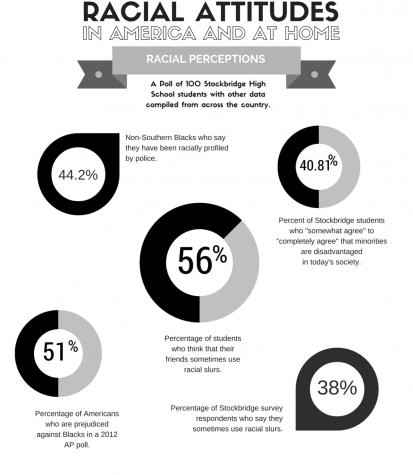Psychologically separated
Race merely a social construct
Divided, not by a vast sea of genetics, but a barrier of ideas and a fog of misunderstanding. Humans are 99.9 percent genetically similar to each other, regardless of ever so slight physical differences. A fraction of genetic variation is not substantial enough to declare another person a whole new race. In fact, biological evidence does not support the concept of subgroups of humans; however, that does not dispel the rampant racism observed today.
The idea of different races of humans most likely originated in 1775 from the studies of Johann Friedrich Blumenbach, a German scientist who sought to determine if humans were made of multiple species. However, through his research, he found that no species or subspecies were present, but instead he identified four “varieties” of humans according to their geographical location: people from Europe, people from Asia and some parts of North America, people from Africa and people from North America. He later revised his thesis to include five generic “varieties” of humans. It was after this research that common misconceptions about race were born, some even still apparent in society today. Misconception and confusion that gives birth to racism.
The primary misunderstanding at hand is the difference between race and ethnicity.
According to Marcus Freeman, a biology professor at Stanford University, the term ‘race’ is used by biologists to describe variants of a species that exhibit phenotypic differences over geographical ranges. That is, species that display different traits that we observe with our senses according to their geographical location. In fact, the term “continental ancestry” is commonly used in place of “race” by biologists.
On the other hand, ethnicity is defined as subgrouping human populations using cultural and physical features, according to Raj Bhopal, professor of public health at the University of Edinburgh. So, the term “race,” which in of itself is an outdated term, is grounded in sorting people according to the genetic traits we see in them based on the continents they originated from, while ethnicity consists of the physical traits we often associate with the group, as well as the culture of the people.
Understanding the difference between ethnicity and race allows the flaws in modern racism to be revealed.
Racism is the belief that all members of a “race” have traits specific to that group of people, especially when these traits are used to identify a superior or inferior race. The very basis of racism points to pseudo-scientific evidence of biological superiority, though racists often discriminate based on cultural aspects of ethnic groups as well. In a sense, cultural “races” have been created, rather than biological ones.
A statement from the American Association of Physical Anthropologists says, “the human features which have universal biological value for the survival of the species are not known to occur more frequently in one population than in any other. Therefore, it is meaningless from the biological point of view to attribute a general inferiority or superiority to this or to that race.” Despite this knowledge, racism is still a prevailing issue. In fact, today we see a new form of racism.
According to a paper by Joseph L Graves Jr., professor and associate dean at the Joint School of Nanoscience and Nanoengineering in North Carolina, color-blind racism is “an ideology that allows persons of the dominant socially defined race (European Americans) to claim that racism is no longer the central factor determining the life chances of persons of non-European descent (particularly dark-skinned individuals of African descent).” Those who use this ideology also argue that since there are no biological races, racism can not exist. However, racism can also target cultural aspects, due to the confusion between ethnicity and race.
Sociology teacher Pam Gower believes that education in the difference between these two concepts is important to ridding the world of racism.
“The more we know about our culture, the better we will understand people’s experiences, history and culture,” Gower said. “I think instead of focusing on those differences to give quality like what’s better or worse, it’s more just to recognize that we are all different, but we are all human and we deserve the same rights.”


James had been a part of the Uncaged Student News staff for the past three years. This year he is the Content Editor. James enjoys playing soccer, watching...








